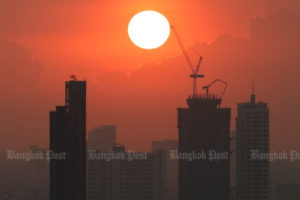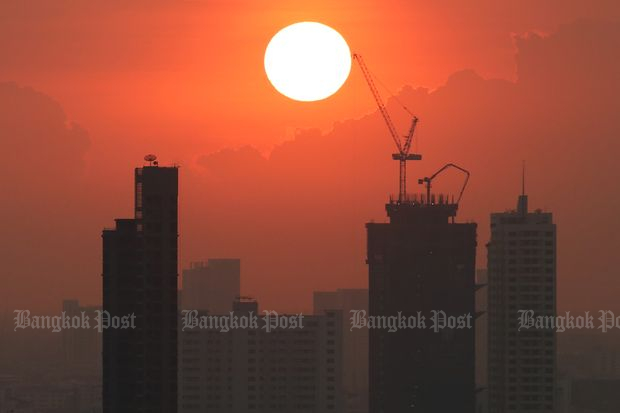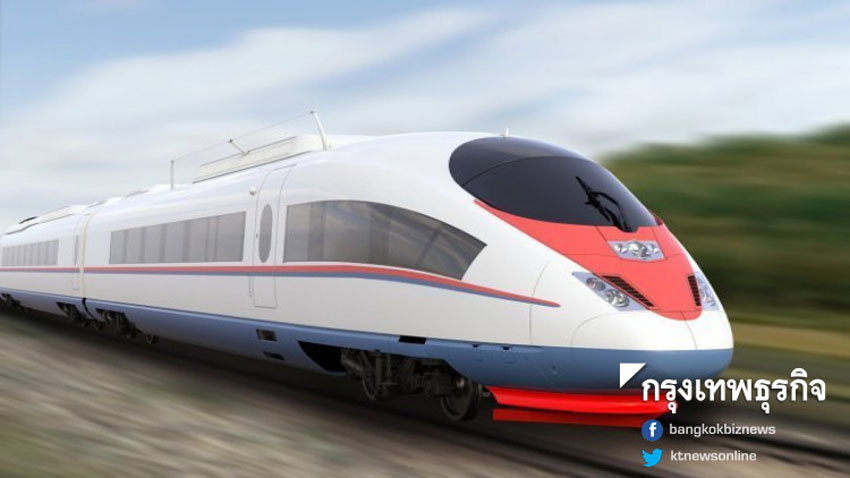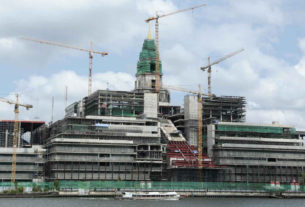
Cost is no longer king in search for new Bangkok office
Real estate costs were traditionally the top focus in office relocation for companies in Bangkok. However, new priorities are reshaping relocation needs and efforts, with the focus on occupancy costs being toned down.
Previously, when office rents rose dramatically, many corporations in prime office buildings relocated to a new building for cost saving. Today, office rents have continued to rise and many companies are relocating. But the relocations are driven more by the lack of space in existing prime buildings that does not allow occupiers to expand.
There is currently 8.9 million square metres of office space across Bangkok. Of this, approximately 3.2 million sq m are in prime-grade buildings with the average vacancy rate of slightly over 6%, meaning approximately 192,000 sq m of prime office space remains vacant in Bangkok.
While 192,000 sq m might sound significant, the number comprises small vacant spaces scattered on different floors in various buildings across the city. This explains why it is challenging for large companies to expand their existing offices and why many of them are relocating to other prime buildings that may have larger continuous space available after previous tenants moved out.
The musical-chair game is expected to continue at least until 2021 when nearly 286,000 sq m of new space is scheduled for completion and will help ease the undersupply situation in Bangkok’s office market.
According to JLL’s Thailand Property Intelligence Centre, some 554,000 sq m of new lettable office space is planned for completion between 2018 and 2021, averaging approximately 185,000 sq m a year.
At present, as most of the existing prime office buildings are fully occupied or have very limited space remaining, numerous large-scale lease negotiations are taking place at office development projects that are now under construction and near completion. Most of these projects still have more space to accommodate large occupiers while lease terms are relatively more flexible, compared to completed prime buildings with low vacancies.
For now, companies that have to hire more people and stay where they are will have no other choice than putting a stronger emphasis on efficiency, using different methods from providing a smaller workspace for staff, reducing enclosed private offices, centralising meeting rooms and areas, utilising of outside storage and introducing a phone-booth room, to having a mobile workplace or hot desks.
It’s not only the reason for companies’ relocation that has changed, the criteria in companies’ search for a new office has changed, too.
Occupancy costs were traditionally a major focus in office relocation decisions, with considerably less concern over how a move would affect employees. But today workforce has become an increasingly important factor in real estate decisions and employers are evaluating potential office locations in light of their ability to help retain and recruit talent.
For many companies looking for office space, convenience of their employees has become the top requirement. While a direct access to a mass transit system is a major preference, a location that offers a good balance between work and play is a big plus. Supporting facilities such as food courts, restaurants and banking facilities within the building are no less important.
In addition, companies do not focus only on efficiency of space within the building, but also the image of the building itself. Well-established companies and start-ups alike prefer modern office buildings that can reflect or help enhance their corporate image as a modern organisation.
This explains how several prime-grade office buildings located outside the traditional CBD have become popular among high-profile local and international companies.
For example, AIA Capital Center, G Tower and The 9th Towers in the area around the Ratchadaphisek-Rama IX intersection have enjoyed strong occupancy rates and high rental rates close to those of prime office buildings in the CBD. The area benefits from high accessibility via the MRT system, abundant supporting amenities and a strategic location that offers easy access to the CBD and the link between Bangkok’s northern and eastern corridors.
So does T-ONE, a new prime-grade office development project by Ichitan Group’s real estate arm, Tan Eng Asset. The project is set to become the first prime-grade office building on Thong Lor upon completion later this year. Occupying an excellent location in one of Bangkok’s most vibrant commercial and residential areas, with a direct link to the BTS Thong Lor station, T-ONE has enjoyed strong pre-commitment levels from both leading Thai and multi-national companies looking to create a workplace enjoyed by young talent in the digital economy.
In conclusion, for fast-growing companies, be they small or large organisations, cost is no longer king in relocation decisions. While companies that need to expand are forced to relocate, the need to retain and attract talent is forcing them to focus far more on people than balance sheets.
Yupa Sathienpabayut is the head of office leasing at property services firm JLL. For more insight, readers may contact her by email: yupa.sathienpabayut AT ap.jll.com or visit www.jll.co.th
Source: https://property.bangkokpost.com/news/1412155/cost-is-no-longer-king-in-search-for-new-office


